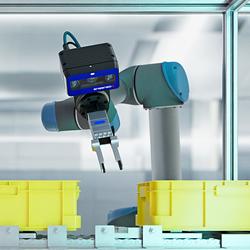FIRST LEGO League Teams Compete to Win Third Annual FLL Global Innovation Award
The Global Innovation Award winning team will receive a cash award of $20,000.
FIRST® (For Inspiration and Recognition of Science and Technology), a not-for-profit organization founded by inventor Dean Kamen, announced that FIRST® LEGO® League (FLL®) teams across the globe are competing for the chance to win worldwide recognition and a cash award of $20,000 in the third annual FLL Global Innovation Award presented by the X PRIZE Foundation.
The award encourages FLL teams, comprised of youths ages 9-16, to submit ideas stemming from their current season's SENIOR SOLUTIONSSM Challenge.
The Global Innovation Award winning team will receive a cash award of $20,000. The two runners-up will receive $5,000 each. The top three teams will be invited to an awards ceremony at the United States Patent and Trademark Office (USPTO) in Alexandria, Va. in June, 2013. Nearly 500 FLL teams submitted ideas for the 2013 competition, and almost 5 million online votes were cast to help determine the finalists.
"Creativity and new ideas come from everywhere and at any age, and the FLL Global Innovation Award has proven that over the last three years. Young people have an exceptional ability to solve difficult real-world problems," said inventor Dean Kamen, President of DEKA Research and Development and FIRST Founder. "This award helps students worldwide understand that they, too, can create and invent. Their problem-solving skills are what our future needs in a complex world. FIRST is proud that the X PRIZE Foundation has continued their support for such an outstanding program."
The 2012-2013 SENIOR SOLUTIONSSM Challenge, still in progress, tasked FLL teams in more than 60 countries to improve the quality of life for seniors by helping them continue to be independent, engaged, and connected in their communities.
X PRIZEs attract the world's top innovators and support them in tackling the grand challenges faced by society.
"Kids are natural innovators and the FLL Global Innovation Award gives students a chance to see how much fun they can have changing the world through invention," said Gregg Maryniak, Secretary of the X Prize Foundation, adding, "We are honored to be the Presenting Sponsor of the Global Innovation Award competition, and to continue the X PRIZE tradition of encouraging new generations of innovators."
The FLL Global Innovation Award Partners in Innovation Sponsors include: The LEGO Group, Booz Allen Hamilton, John Deere, MasterCard, and Rockwell Collins. Edison Nation is the Go-To Market Sponsor to help winning teams take their product from idea to store shelves. The FLL Global Innovation Award is presented in cooperation with AARP and the USPTO.
The FIRST LEGO League (FLL) is an international program for 9 to 16-year-old children (9 to 14 in the U.S., Canada, and Mexico) created in a partnership between FIRST and The LEGO Group in 1998 to get children excited about science and technology and teach them valuable employment and life skills. Using LEGO® MINDSTORMS® technologies and LEGO Education materials, children work alongside adult Coaches to design, build, and program autonomous robots and create an innovative solution to a problem as part of their research project. After eight intense weeks, the competition season culminates at high-energy, sports-like tournaments. Like any other organized "sport," teams also fundraise, create a team identity, and go on field trips.
The LEGO Group, Founding Partner of FIRST LEGO League, has supported the growth and success of FLL through ongoing funding and donations for more than a dozen years as the program has grown into a global competition. In the 2012-2013 FLL season, the program registered over 200,000 youth worldwide.
The general public is invited to visit the Global Innovation Award website at http://fllinnovation.firstlegoleague.org.
Featured Product

3D Vision: Ensenso B now also available as a mono version!
This compact 3D camera series combines a very short working distance, a large field of view and a high depth of field - perfect for bin picking applications. With its ability to capture multiple objects over a large area, it can help robots empty containers more efficiently. Now available from IDS Imaging Development Systems. In the color version of the Ensenso B, the stereo system is equipped with two RGB image sensors. This saves additional sensors and reduces installation space and hardware costs. Now, you can also choose your model to be equipped with two 5 MP mono sensors, achieving impressively high spatial precision. With enhanced sharpness and accuracy, you can tackle applications where absolute precision is essential. The great strength of the Ensenso B lies in the very precise detection of objects at close range. It offers a wide field of view and an impressively high depth of field. This means that the area in which an object is in focus is unusually large. At a distance of 30 centimetres between the camera and the object, the Z-accuracy is approx. 0.1 millimetres. The maximum working distance is 2 meters. This 3D camera series complies with protection class IP65/67 and is ideal for use in industrial environments.
